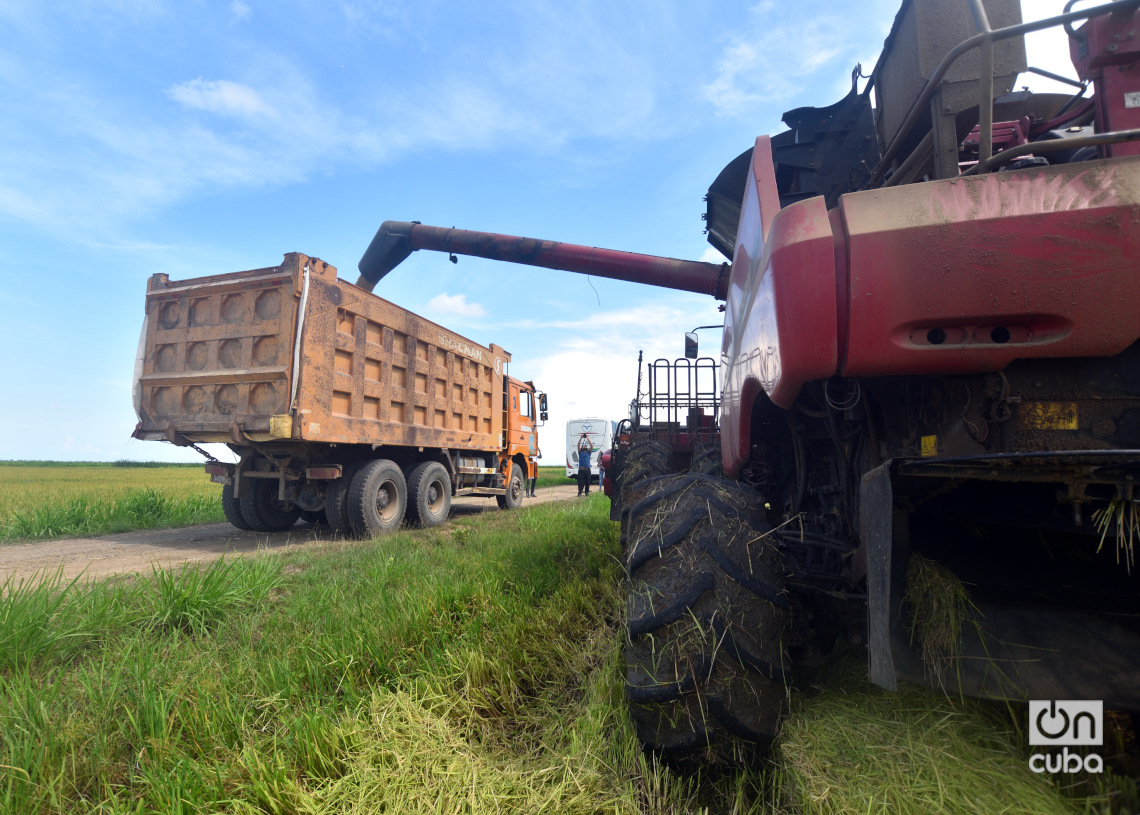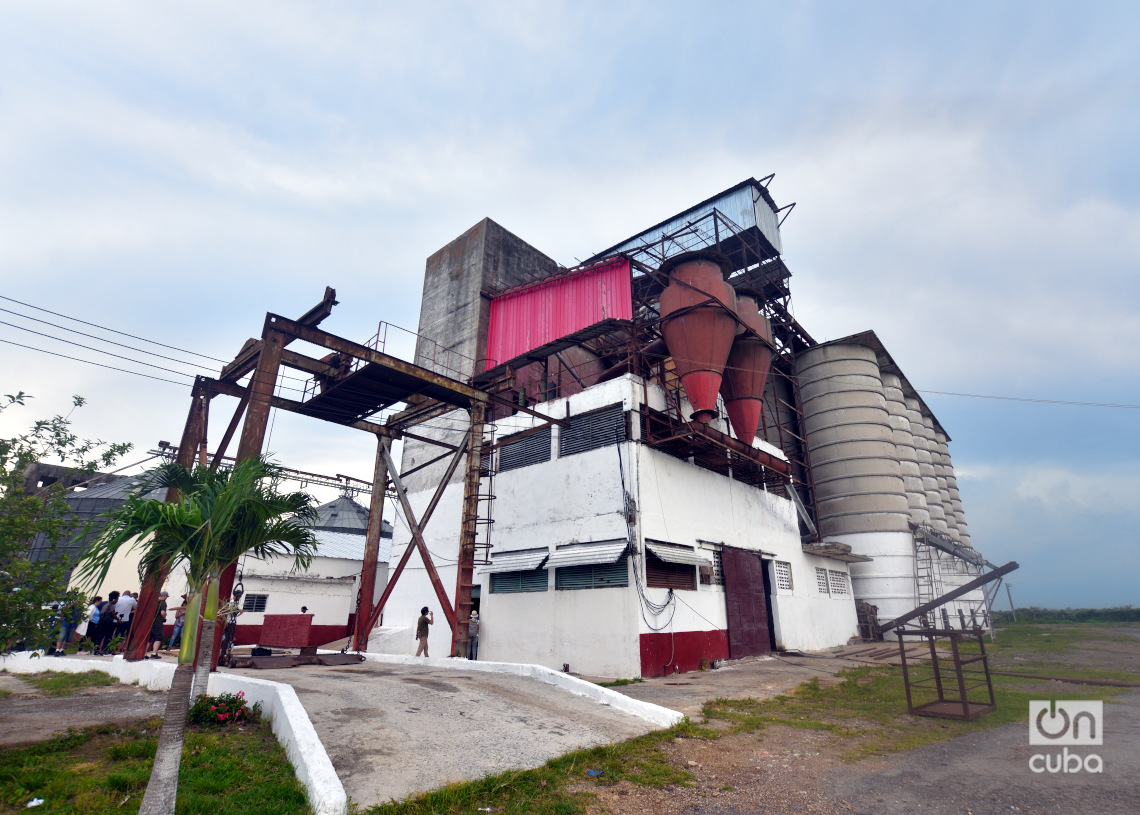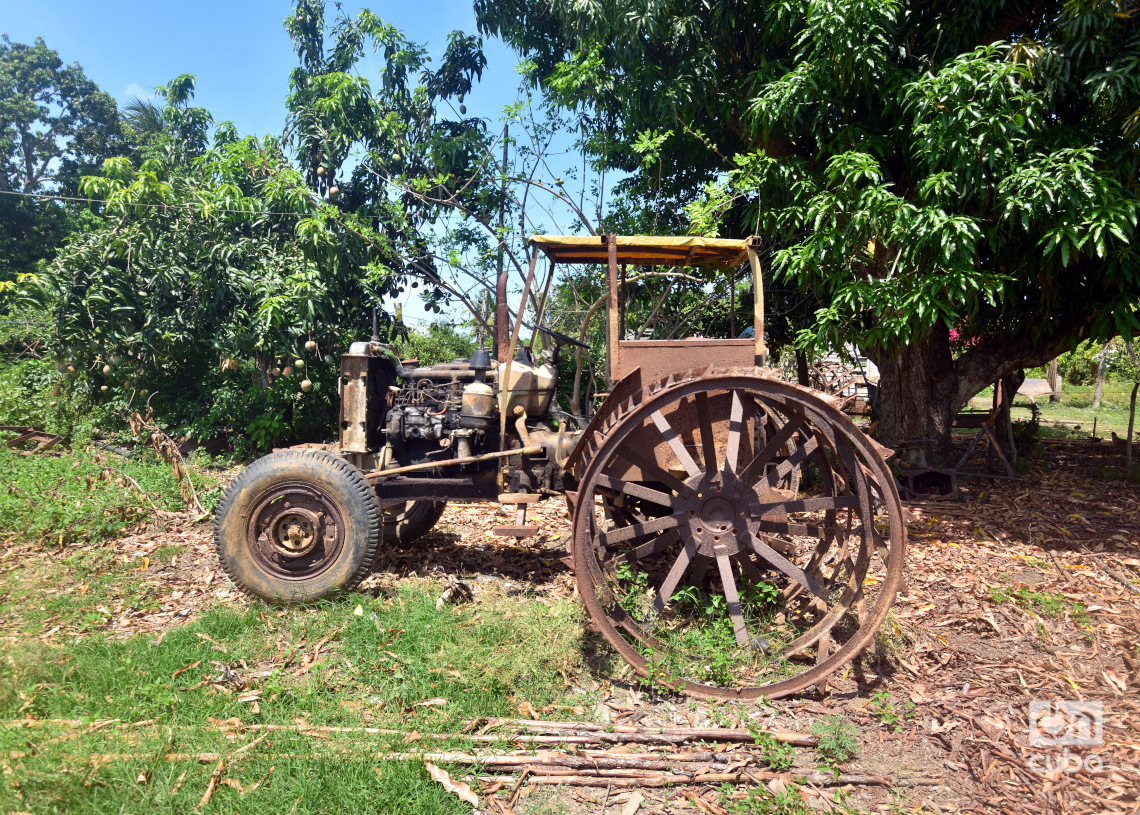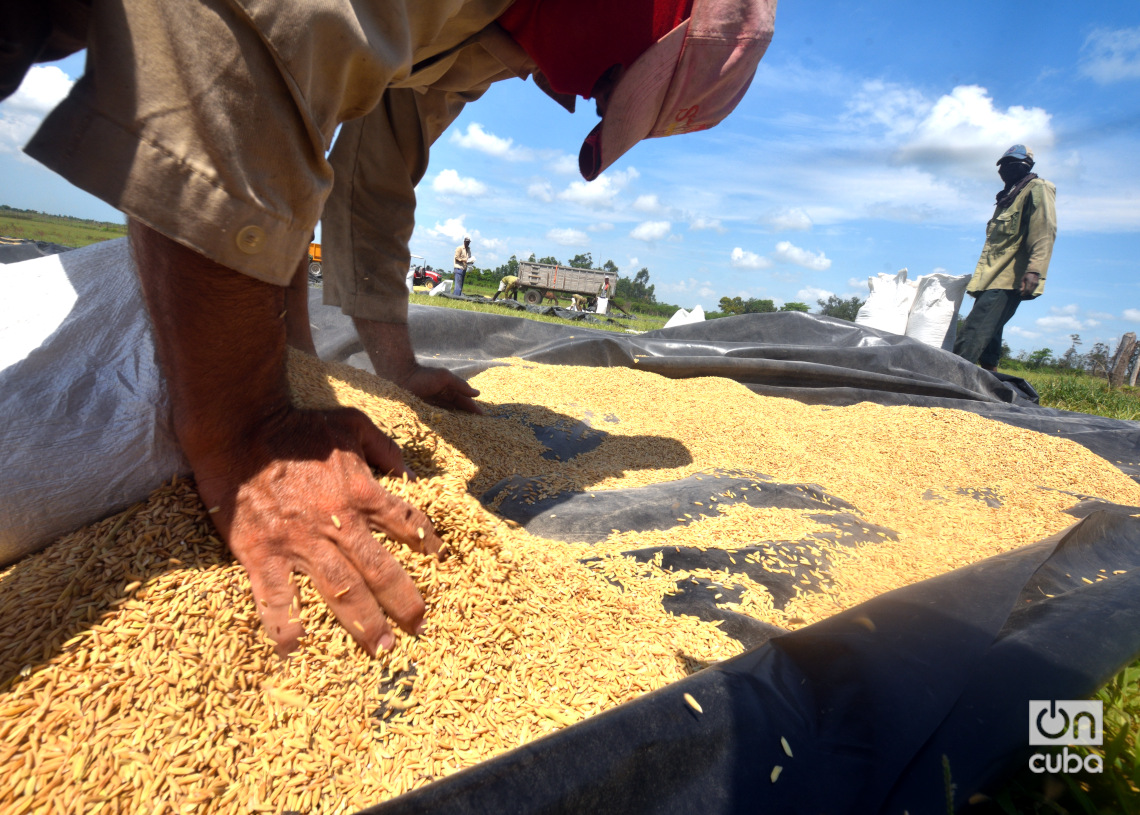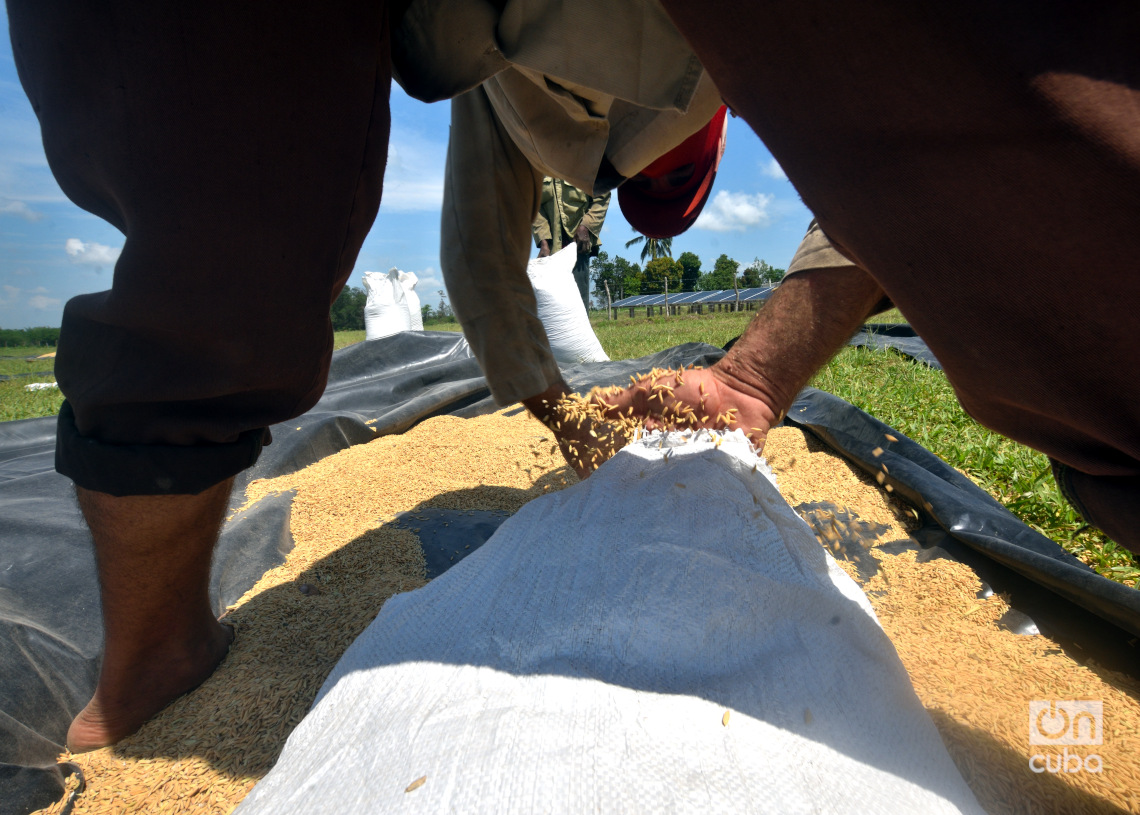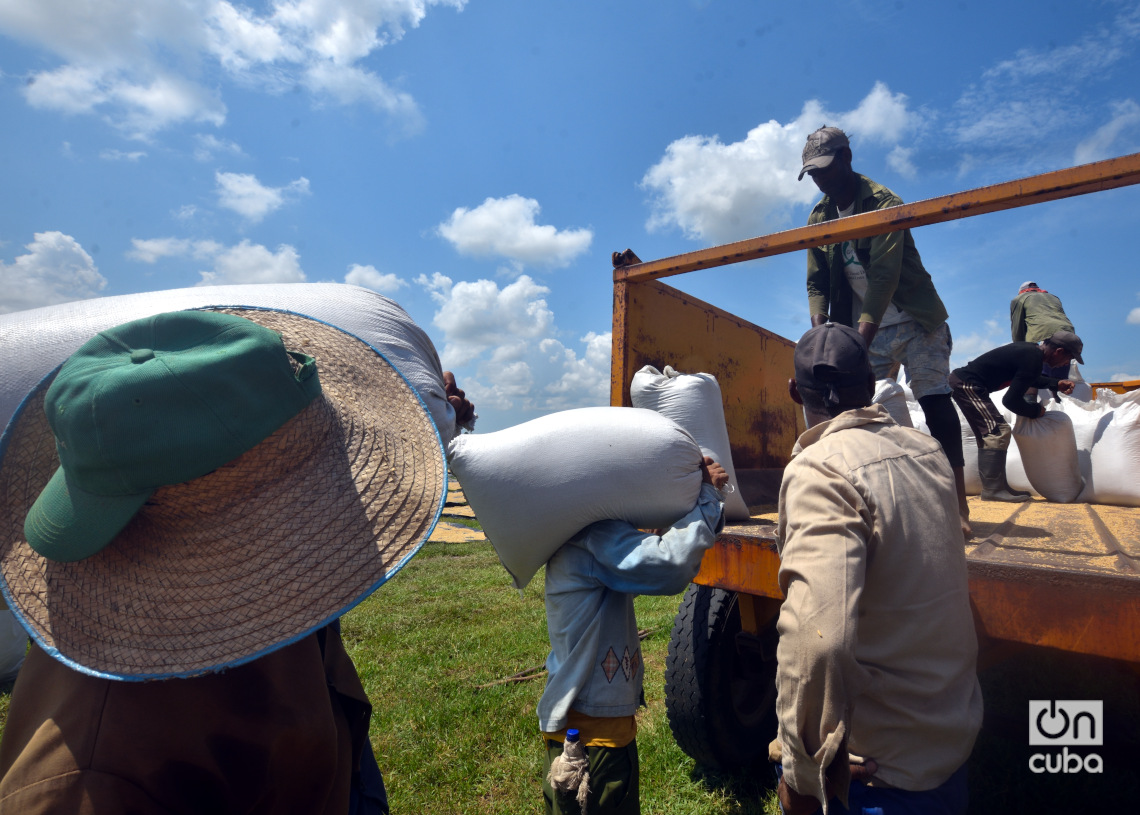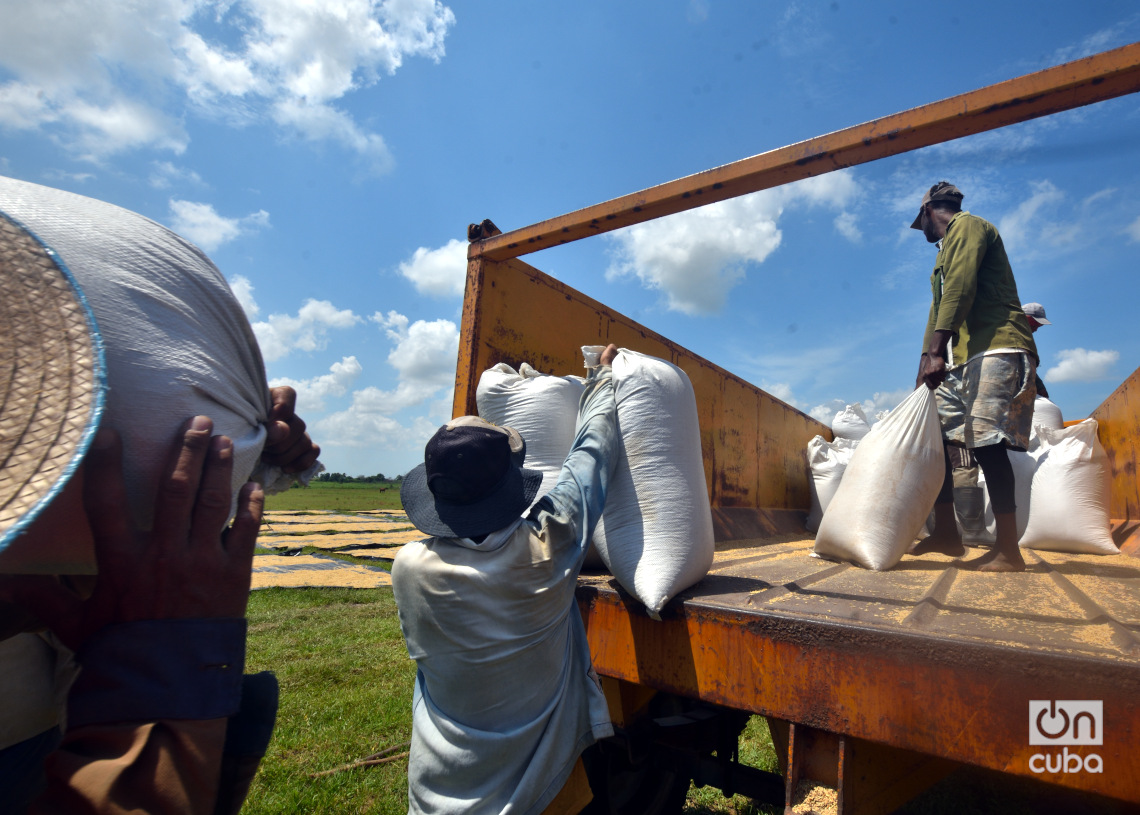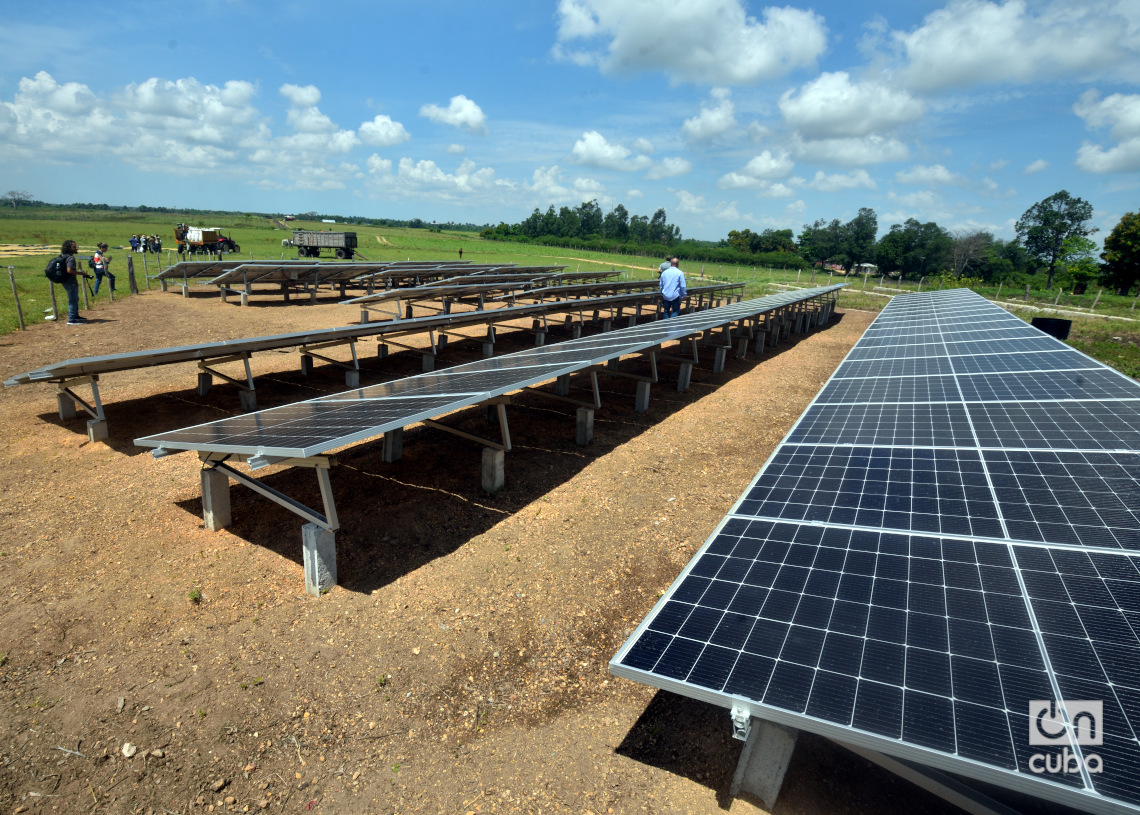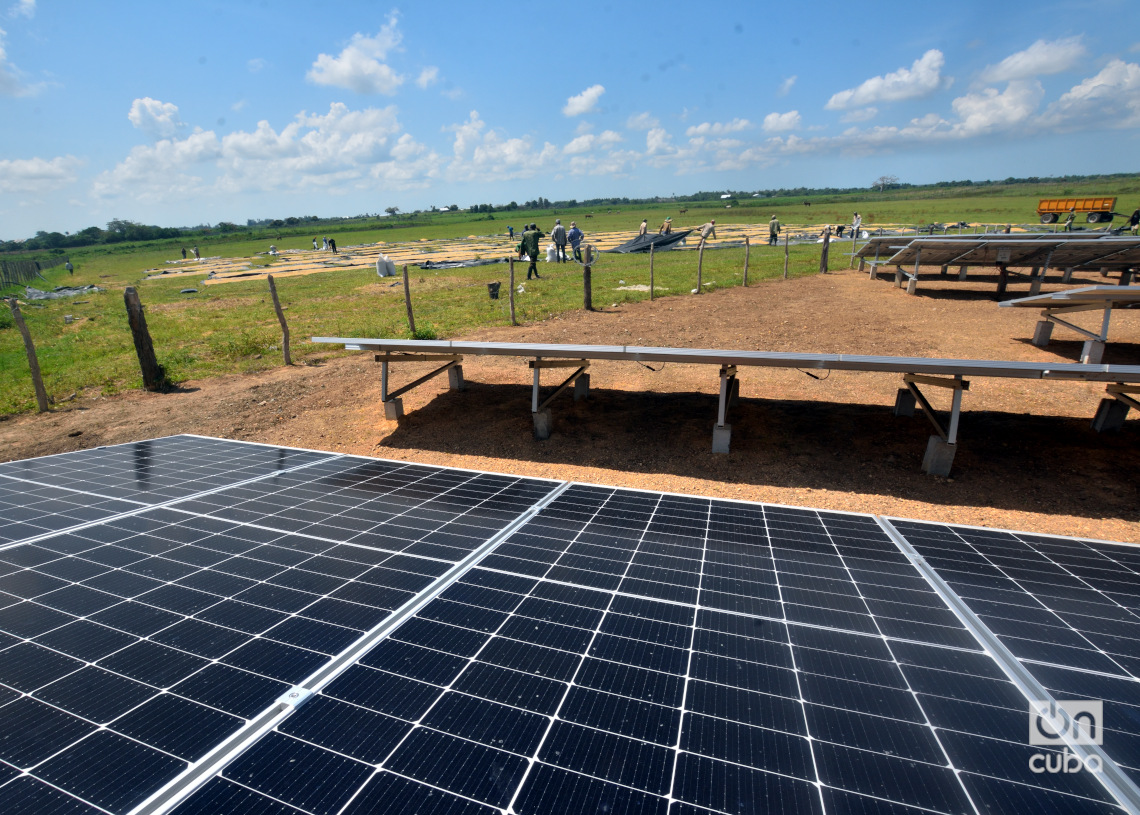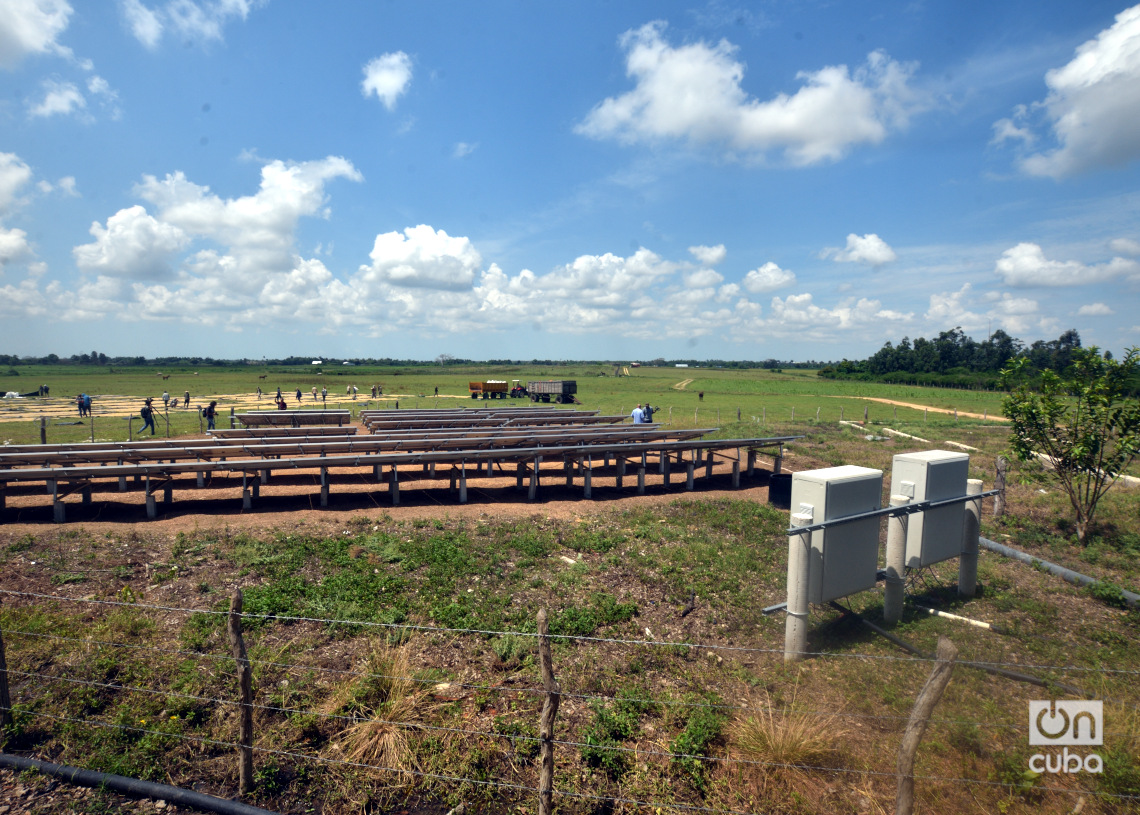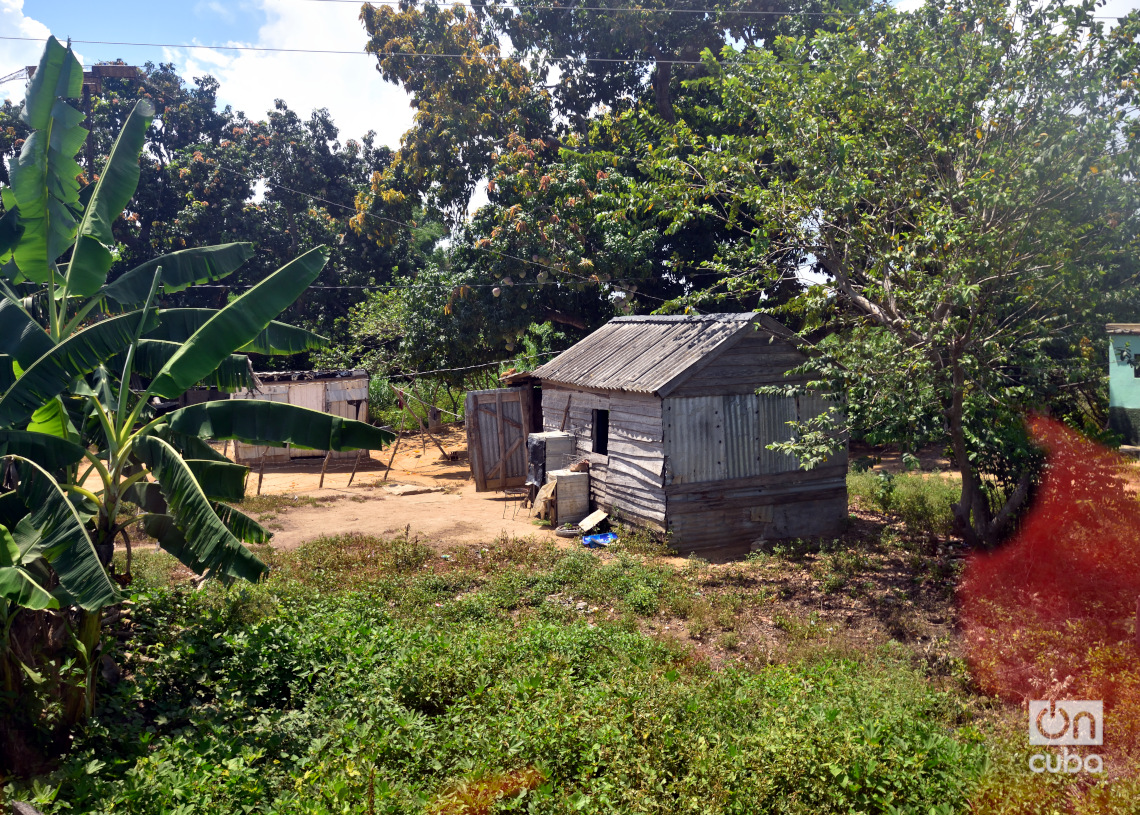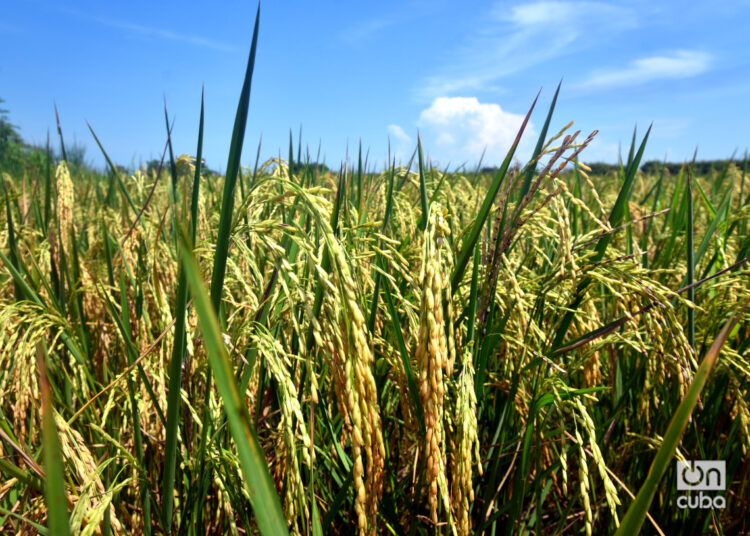Los Palacios, in Pinar del Río, is a “land of rice.” This territory, just over 760 square kilometers in area, has historically been one of the main producers on the island of a staple food on Cuban tables.
However, as has also been the case in the rest of the country, its harvests have declined in recent years. Even the drying facility and mill of the Camilo Cienfuegos Basic Business Unit (UEB) have been paralyzed since 2022 after being damaged by Hurricane Ian. But that reality has started changing.
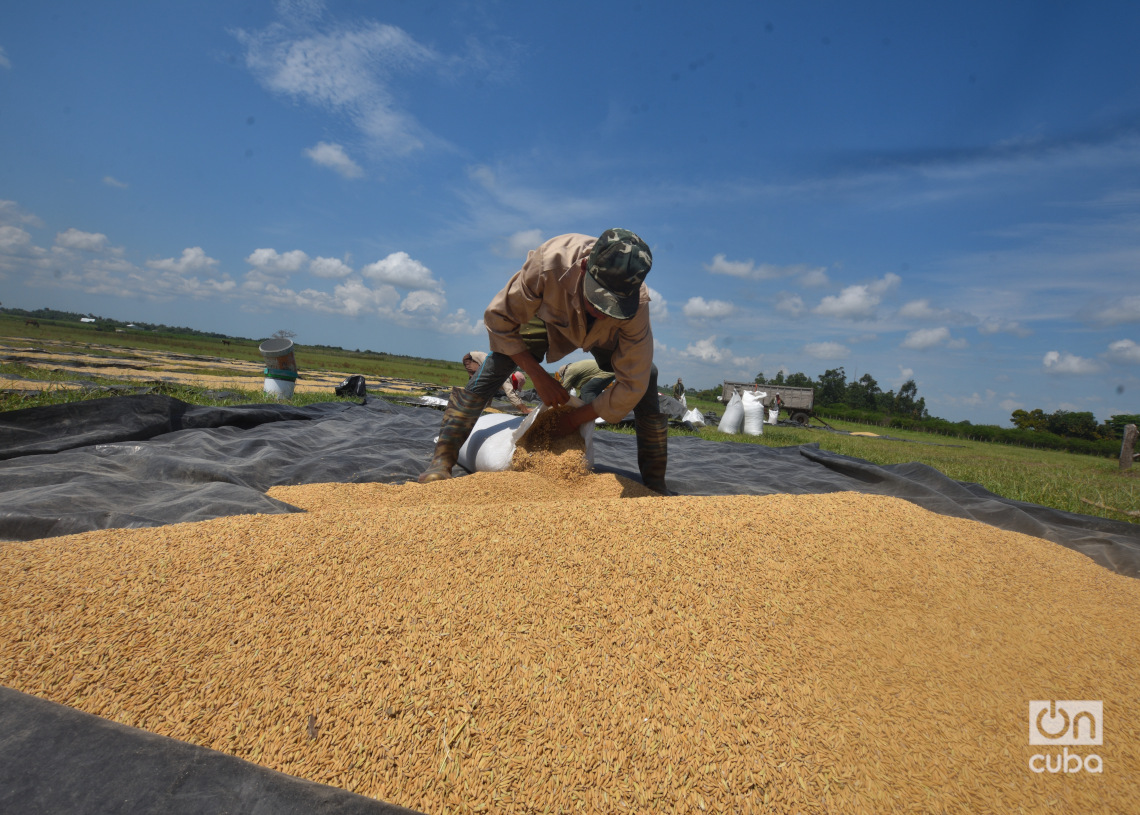
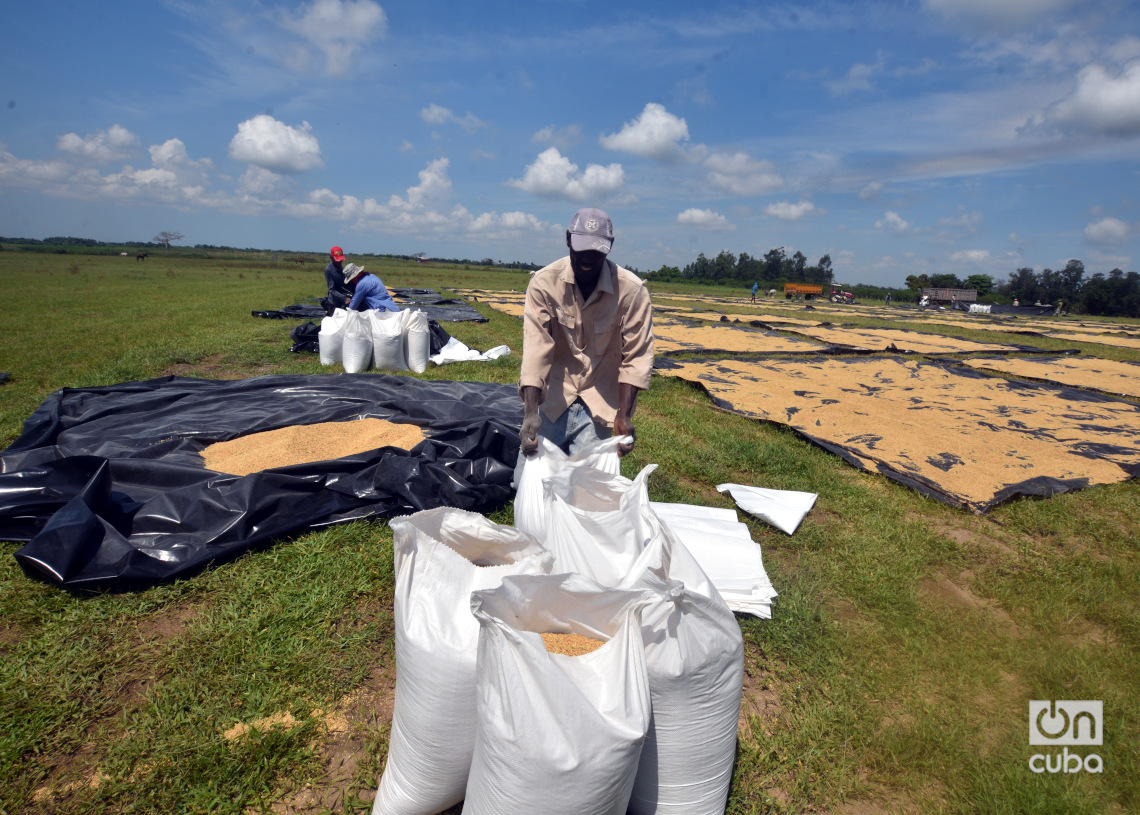
After years of growth in the past decade, Cuban rice production has suffered a notable decline amid the island’s deep economic crisis. Last year, only a little more than half of what was planted in 2018 was planted, and about 80,000 tons were harvested, less than a third of what was produced then and barely 11% of domestic demand.
It is at this point that all eyes have turned to Los Palacios. There, as in other areas of Cuba, authorities are trying to revitalize the rice harvest with the support of Vietnam, one of the world’s leading producers. But, unlike what is happening in other territories, in the Pinar del Río municipality, the Vietnamese role is different, much greater.
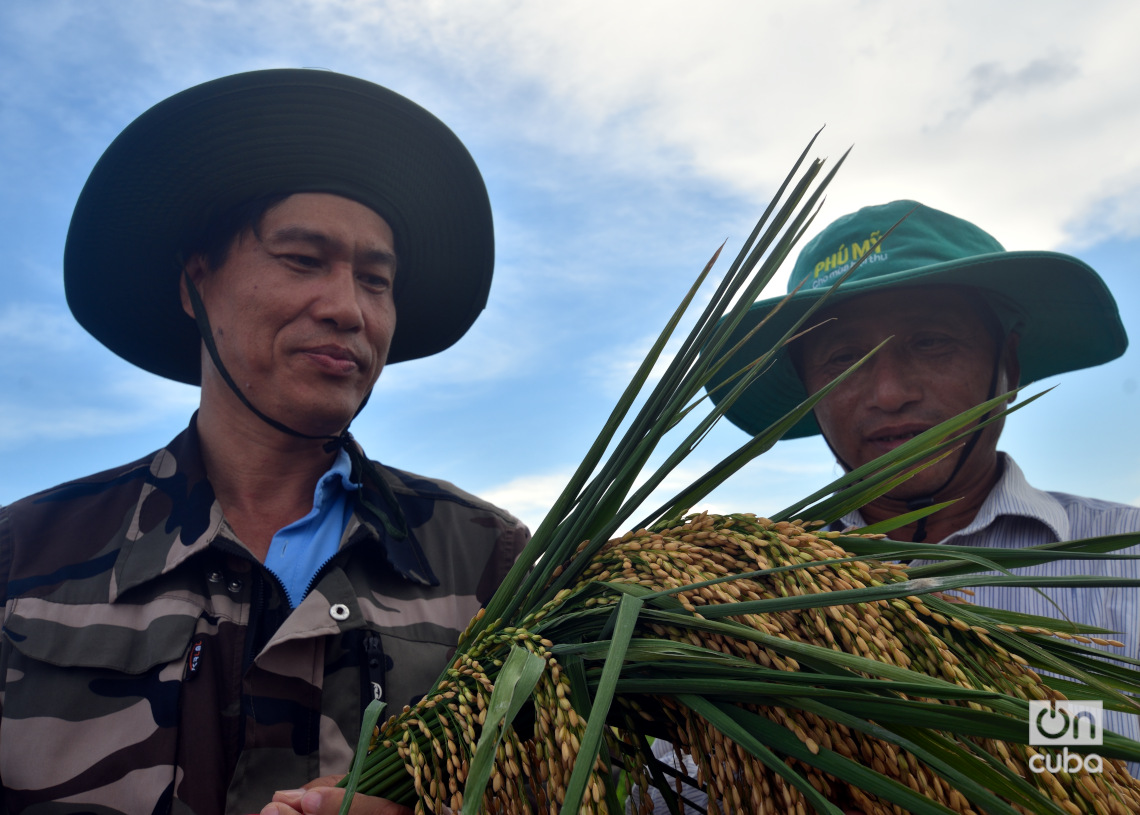
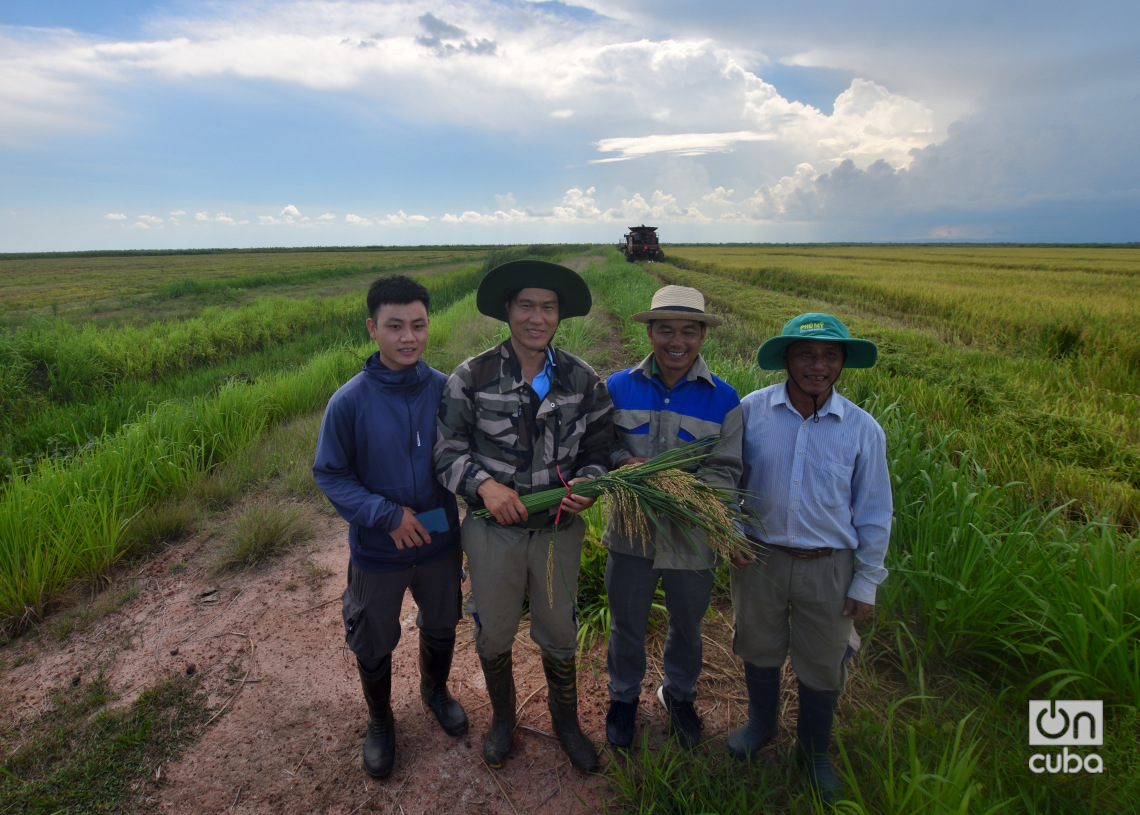
In Los Palacios, the Vietnamese company Agri VMA became the first foreign entity — at least according to public reports — to receive Cuban land in usufruct.
The news broke last January, but the project has been underway for two years. Now, with the harvest of its first crops and the release of its results, it has returned to the spotlight.
For now, the project remains small. Agri VMA has received about 1,000 hectares — although it hopes to reach 5,000 in three years — where the yield exceeds 7.2 tons per hectare, well above the 1.7 tons achieved in Cuba in 2024 and the 2.2 tons planned for this year.
To this end, the Asian company provides everything from seeds to fertilizers and insecticides.
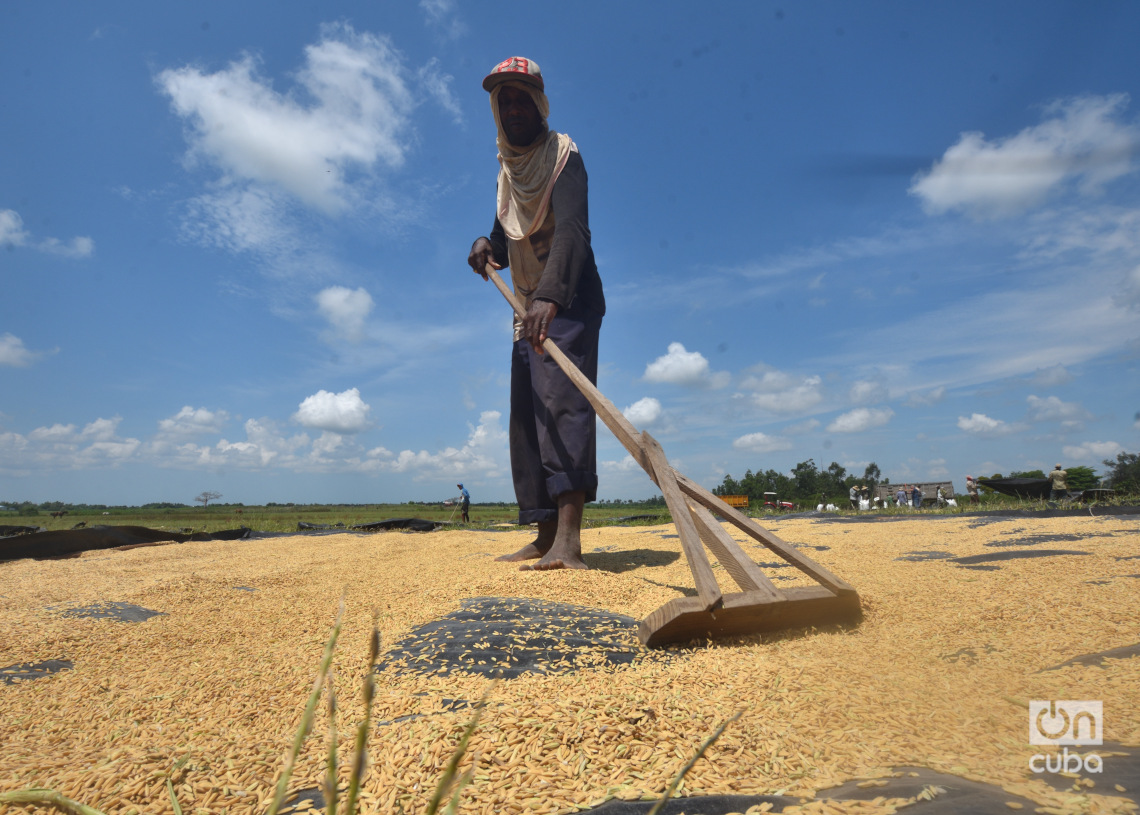
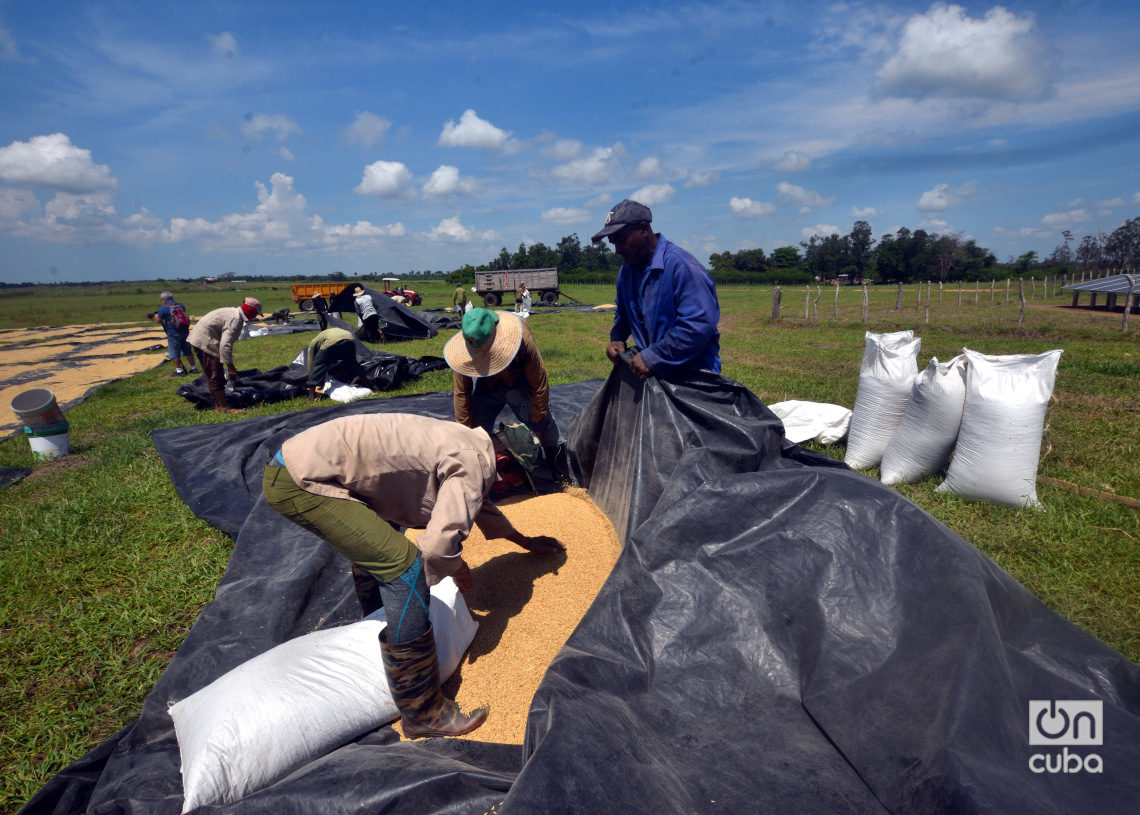
In addition to employing its own specialists, Agri VMA also directly hires Cuban workers, with the benefits this represents for them.
The launch of the project also served as an impetus for the repair of the idled mill, as the Los Palacios Agrobusiness Enterprise earns income from drying and milling services.
The Vietnamese company also pays Cuba for renting land and other services, but the harvested rice then becomes its sole property, according to a recent report by the IPS news agency.
However, the government’s intention is for all rice to be purchased by the Cuban state, which would lower its cost compared to rice imported from outside the island.
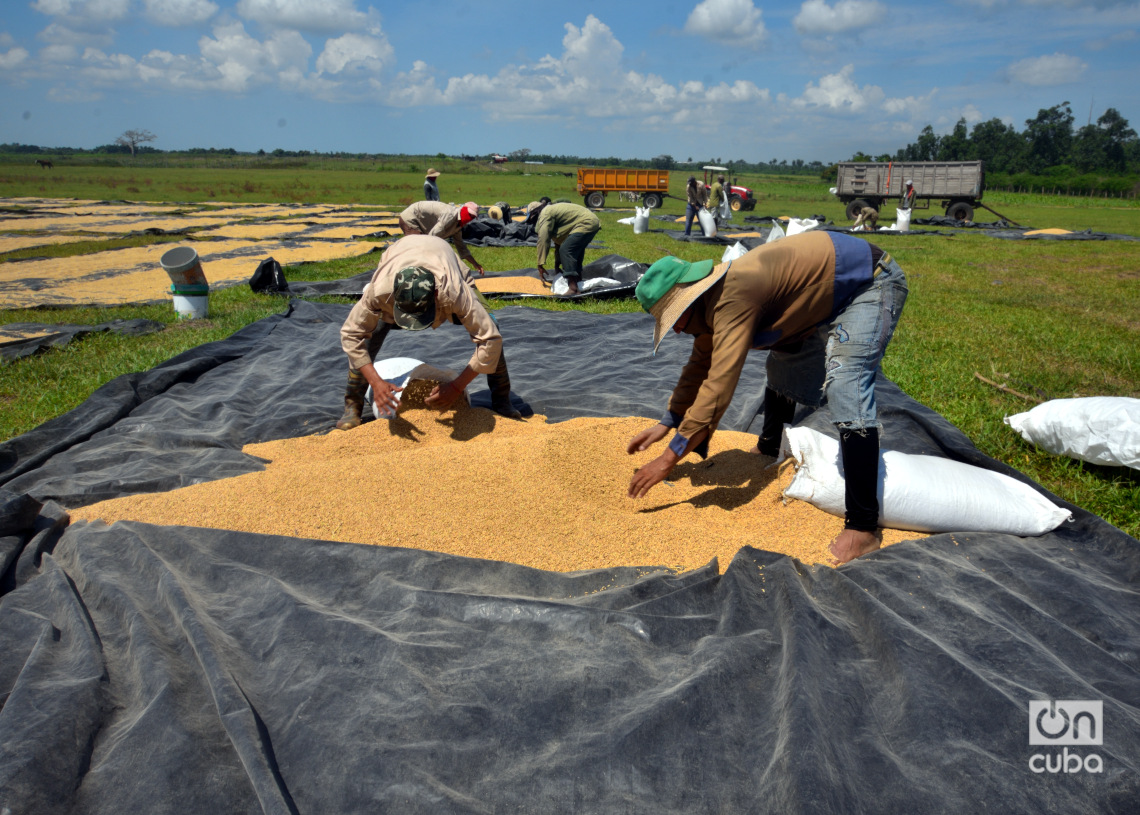
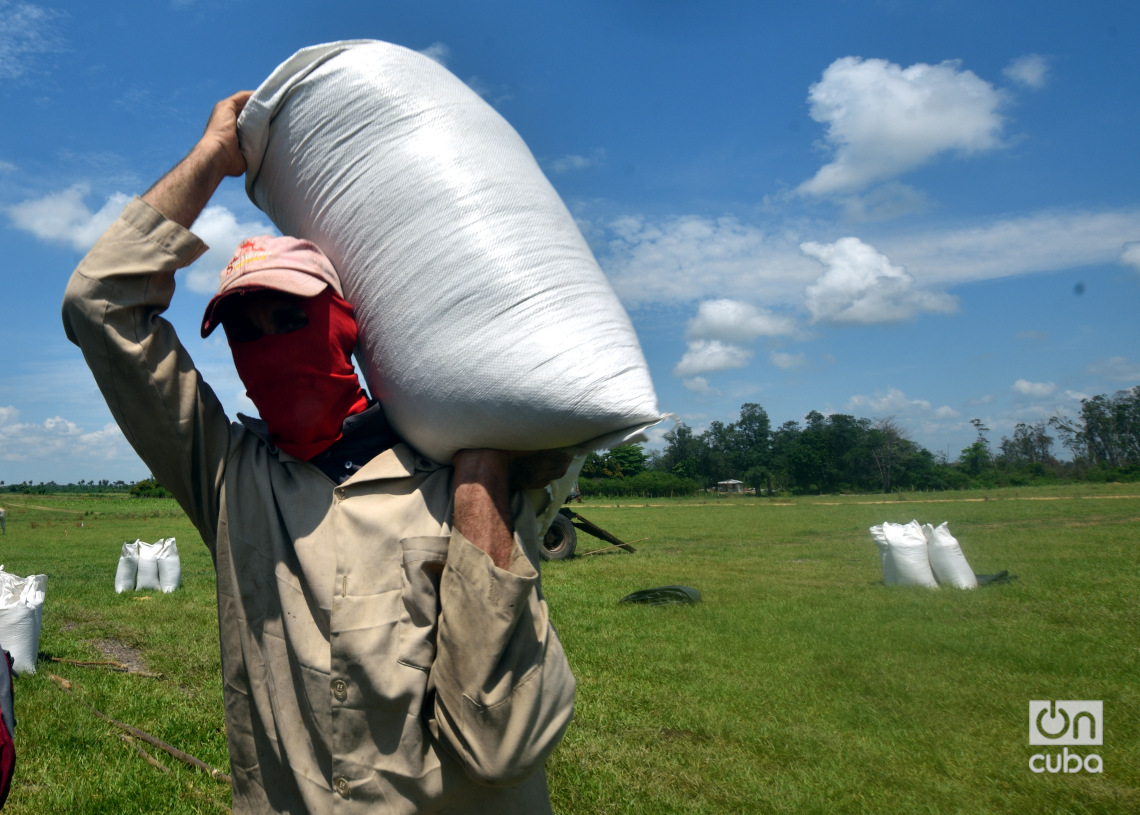
The island’s authorities, who have described the project as “strategic,” have not hidden their enthusiasm.
In April, Prime Minister Manuel Marrero stated that the results “are similar to those in Vietnam” and “are very encouraging.” However, he acknowledged difficulties related to the energy crisis and the deterioration of technology, for which he said, “quick solutions” were being sought.
If the expected benefits are achieved, the agreement with Agri VMA could be replicated in other areas of a country that imported more than 400,000 tons of rice in 2024.
Therefore, if there are no setbacks along the way — something not uncommon on the island — what is happening in Los Palacios could be a good step toward a gradual recovery of rice production in Cuba. Time will tell.
